
Stephen Joshua Sondheim was an American composer and lyricist. Regarded as one of the most important figures in 20th-century musical theater, he is credited for reinventing the American musical. With his frequent collaborations with Harold Prince and James Lapine, Sondheim's Broadway musicals tackled unexpected themes that ranged beyond the genre's traditional subjects, while addressing darker elements of the human experience. His music and lyrics were tinged with complexity, sophistication, and ambivalence about various aspects of life.

William Goldman was an American novelist, playwright, and screenwriter. He first came to prominence in the 1950s as a novelist before turning to screenwriting. Among other accolades, Goldman won two Academy Awards in both writing categories—once for Best Original Screenplay for Butch Cassidy and the Sundance Kid (1969) and once for Best Adapted Screenplay for All the President's Men (1976).
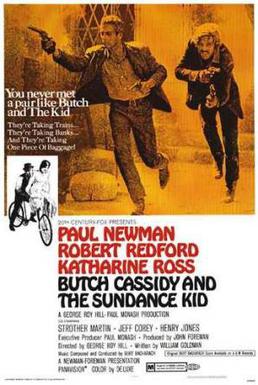
Butch Cassidy and the Sundance Kid is a 1969 American Western buddy film directed by George Roy Hill and written by William Goldman. Based loosely on fact, the film tells the story of Wild West outlaws Robert LeRoy Parker, known as Butch Cassidy, and his partner Harry Longabaugh, the "Sundance Kid", who are on the run from a crack US posse after a string of train robberies. The pair and Sundance's lover, Etta Place, flee to Bolivia to escape the posse.

The Verdict is a 1982 American legal drama film directed by Sidney Lumet and written by David Mamet, adapted from Barry Reed's 1980 novel of the same name. It stars Paul Newman, Charlotte Rampling, Jack Warden, James Mason, Milo O'Shea, and Lindsay Crouse. A down-on-his-luck alcoholic lawyer accepts a medical malpractice case to improve his own situation, but discovers along the way that he is doing the right thing.
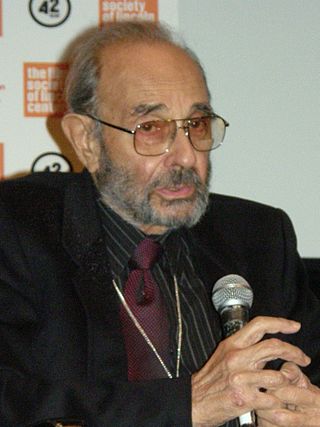
Stanley Donen was an American film director and choreographer. Donen directed some of the most iconic films of the Golden Age of Cinema. He received the Honorary Academy Award in 1998, and the Career Golden Lion at the Venice Film Festival in 2004. Four of his films have been inducted into the National Film Registry at the Library of Congress.
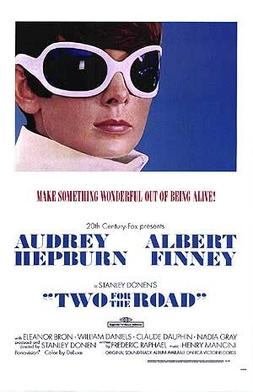
Two for the Road is a 1967 British comedy-drama romance film directed and produced by Stanley Donen, starring Audrey Hepburn and Albert Finney. The film tells the story of a married couple who reflect on their twelve-year relationship while on a road trip from England to the French Riviera. As they survey their foundering marriage in the present, the evolution of their relationship reveals itself through vignettes from four previous trips they took along the same route. The film was made from an original screenplay by Frederic Raphael. Supporting cast members include Eleanor Bron, William Daniels, Claude Dauphin, and Nadia Gray. Two for the Road was Hepburn's penultimate film before her semi-retirement in early 1967.

Richard Owen Fleischer was an American film director whose career spanned more than four decades, beginning at the height of the Golden Age of Hollywood and lasting through the American New Wave.

Saturn 3 is a 1980 British science fiction film produced and directed by Stanley Donen, and starring Farrah Fawcett, Kirk Douglas and Harvey Keitel. The screenplay was written by Martin Amis, from a story by John Barry. Though a British production, made by Lew Grade's ITC Entertainment and shot at Shepperton Studios, the film has an American cast and director.
Jack Isaac Clayton was a British film director and producer who specialised in bringing literary works to the screen.

Peter James Yates was an English film director and producer. He is known for directing such films as Bullitt (1968), John and Mary (1969), The Friends of Eddie Coyle (1973), Breaking Away (1979), and The Dresser (1983). He received nominations for four Academy Awards, three BAFTA Awards, and two Golden Globe Awards.
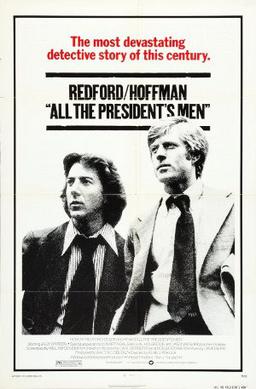
All the President's Men is a 1976 American biographical political drama thriller film about the Watergate scandal that brought down the presidency of Richard Nixon. Directed by Alan J. Pakula with a screenplay by William Goldman, it is based on the 1974 non-fiction book of the same name by Carl Bernstein and Bob Woodward, the two journalists investigating the scandal for The Washington Post.

Year of the Comet is a 1992 romantic comedy adventure film directed by Peter Yates and starring Tim Daly, Penelope Ann Miller, and Louis Jourdan in his final film role. The film was written by William Goldman and produced by Alan Brown and Phil Kellogg. The plot concerns the pursuit of the most valuable bottle of wine in history. The title refers to the year it was bottled, 1811, which was known for the Great Comet of 1811, and also as one of the best years in history for European wine.

Harper is a 1966 American mystery film based on Ross Macdonald's 1949 novel The Moving Target and adapted for the screen by novelist William Goldman, who admired MacDonald's writings. The film stars Paul Newman as Lew Harper, and was directed by Jack Smight, with a cast that includes Robert Wagner, Julie Harris, Janet Leigh, Shelley Winters, Lauren Bacall, and Arthur Hill.

Misery is a 1990 American psychological thriller film directed by Rob Reiner, based on Stephen King's 1987 novel of the same name, starring James Caan, Kathy Bates, Lauren Bacall, Richard Farnsworth, and Frances Sternhagen. The plot centers around an author who is held captive by an obsessive fan who forces him to rewrite the finale to his novel series.

Magic is a psychological horror novel written by William Goldman. It was published in the United States in August 1976 by Delacorte Press. In 1978 Richard Attenborough directed a feature film adaptation of the story that starred Anthony Hopkins and Ann-Margret.

The Great Gatsby is a 1974 American romantic drama film based on the 1925 novel of the same name by F. Scott Fitzgerald. The film was directed by Jack Clayton, produced by David Merrick, and written by Francis Ford Coppola. It stars Robert Redford, Mia Farrow, Sam Waterston, Bruce Dern, and Karen Black. The plot concerns the interactions of writer Nick Carraway with enigmatic millionaire Jay Gatsby (Redford) and Gatsby's obsession to reunite with his former lover, Daisy Buchanan (Farrow), amid the riotous parties of the Jazz Age on Long Island near New York City.
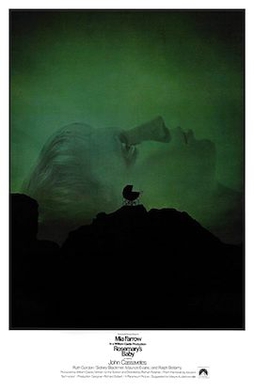
Rosemary's Baby is a 1968 American psychological horror film written and directed by Roman Polanski, based on Ira Levin's 1967 novel of the same name. The film stars Mia Farrow as a young wife living in Manhattan who comes to suspect that her elderly neighbors are members of a Satanic cult and are grooming her in order to use her baby for their rituals. The film's supporting cast includes John Cassavetes, Ruth Gordon, Sidney Blackmer, Maurice Evans, Ralph Bellamy, Patsy Kelly, Angela Dorian, and, in his feature film debut, Charles Grodin.
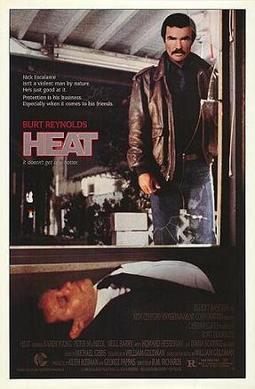
Heat is a 1986 American neo-noir dramatic action thriller film about an ex-mercenary working as a bodyguard in Las Vegas. The film was written by William Goldman, based on his 1985 novel of the same name. Heat was directed by Dick Richards and Jerry Jameson. The film stars Burt Reynolds, Karen Young, Peter MacNicol, Howard Hesseman, Neill Barry and Joseph Mascolo.
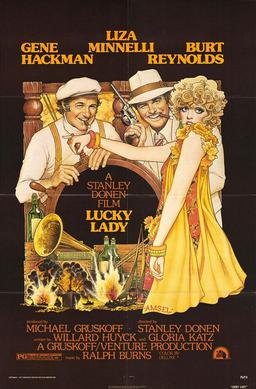
Lucky Lady is a 1975 American comedy-drama film directed by Stanley Donen and starring Liza Minnelli, Gene Hackman, Burt Reynolds and Robby Benson. Its story takes place in 1930 during Prohibition in the United States.

Players is a 1979 American romance drama film directed by Anthony Harvey and starring Ali MacGraw and Dean Paul Martin about a young tennis player who has an affair with an older woman.


















